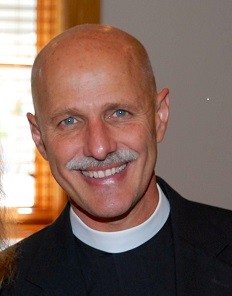Presentation of the Augsburg Confession
Therefore, since we are surrounded by so great a cloud of witnesses, let us also lay aside every weight, and sin which clings so closely, and let us run with endurance the race that is set before us. Hebrews 12:1
On June 25th, the Church commemorates the “Presentation of the Augsburg Confession.” The Church Year is divided weekly into the following categories: Sundays & Seasons, Feasts & Festivals & Commemorations. A helpful explanation of these observances can be found on pp. x-xiii in the front of our hymnal, the Lutheran Service Book. It is good, right and salutary for us to remember those who have come before us and follow their path of faith and good works. As our congregation and Pastors subscribe to the Unaltered (original) Augsburg Confession, it is also helpful to review the foundational nature of this historic document (and why it is part of our confession of the faith and included as a Commemoration in our Church Year). Lastly, it is imperative in our culture today to recognize and model those who stood their ground in the midst of a world that so quickly deserted God and His Word. Reprinted below is an excellent article by Dr. Kilcrease. May we find our voice and stand firm in the same faith.
Enjoy!
Pr. Mackay
The Presentation of the Augsburg Confession
by Dr. Jack Kilcrease
Throughout the 1520’s, the Holy Roman Emperor Charles V was deeply frustrated by the rise of the Lutheran Reformation. Although he wished to put an end to the various Protestant movements that had grown up in the empire, he nevertheless found it very difficult to do so in light of a variety of wars he was engaged in with the Ottoman Turks and the League of Cognac. For this reason, Charles was effectively forced to allow the Reformation to spread largely unchecked throughout the 1520’s.
Nevertheless, by 1530, Charles had either defeated or made temporary peace with his enemies. Hence, he was finally able to turn his full attention to the religious issue that had plagued Germany since the Diet of Worms in 1521. Therefore, in January of 1530, the Emperor called an imperial Diet to meet in the German city of Augsburg in April of that year to decide the religious question.
As part of this imperial meeting, the Lutheran princes were asked to present their religious teachings. Wishing to present a unified front at the Diet, Luther, Melanchthon, and several other Wittenberg reformers met at Torgau in March of 1530 and drafted a confessional document which came to be known as the “Torgau Articles.” Since Luther was still officially an outlaw under imperial law, he could not travel on to Augsburg to present these articles before the Emperor and the imperial Diet. Instead, a delegation led by Philipp Melanchthon traveled to Augsburg to present the confession of faith before the Emperor, while Luther remained at Coburg Castle. Once there, Melanchthon revised the articles drafted earlier at Torgau under the advice of a number of theologians and political leaders. The final draft was complete on June 23rd and came to be known as the “Augsburg Confession.” Luther was sent drafts of the revised document as it was composed and approved the revisions and the final draft as well. Although the petition of the Lutheran princes to have the document publicly read was initially refused, the Emperor finally agreed. As a result, Melanchthon read the confession in the presence of the Emperor on June 25, 1530.
The Augsburg Confession is comprised of twenty-eight articles. Of these articles, twenty-one represent a positive presentation of the Christian faith as taught in the Lutheran Churches while the last seven articles cover suggested reforms of certain practices of the medieval Church. Although the ultimate aim of the Augsburg Confession was to summarize the main teachings of the Bible, Melanchthon also wished to emphasize the “catholic” (that is, meaning “universal,” not “Roman Catholic”) nature of Lutheran teaching. Throughout the confession, Melanchthon quotes or makes reference to the theologians and councils of the ancient Church to demonstrate the Lutheran Church’s continuity with early Christian teaching.
Showing the catholicity of Lutheran belief was important, because many Roman Catholic theologians had claimed that the Lutherans had broken with the traditional theology of the Church going all the way back to Christ and the apostles. Contrary to this charge, the Lutherans sought to show that their faith was not only drawn from Scripture, but had been the basic teachings of the Christian Church throughout the ages. It was only later that the medieval Church had corrupted the true faith through unbiblical and uncatholic innovations. This argument also carries over into the last seven articles that deal with reforms. With a few exceptions, most of the reforms proposed by Melanchthon involved rolling back changes that had been made to Church teaching and practice in the eleventh century by Pope Gregory the VII and his followers during a period often called the “Gregorian Revolution” by Church historians.
Although it is highly unlikely that modern Christians will ever be called upon to give an account of their faith in quite the same manner as the Wittenberg reformers did at Augsburg, the presentation of the Augsburg Confession may still serve as an important model to the Christian life of faith. Paul teaches us: “If you confess with your mouth that Jesus is Lord and believe in your heart that God raised him from the dead, you will be saved” (Rom. 10:9). For this reason (although Christians do not earn their salvation by confessing Christ publicly), faith necessarily gives rise to a public confession of faith through words and actions. If we believe in Jesus and the salvation he offers, we will confess that faith publicly, knowing that whatever the negative social, political, or personal consequences, the forces of this world do not have the power to control our ultimate fate. Christ has already overcome the world (Jn. 16:33) and we need not fear confessing the faith boldly.
https://lutheranreformation.org/history/presentation-augsburg-confession/
There is a culture war underway
 It is hard to reflect upon the life of our Christian Church when the world is in such commotion. There is a culture war underway, and like in the days of the Civil War, where slavery divided a nation and one had to choose one side or the other, where intractable opinions, hatred and violence turned brother against brother, such is the condition of the world today. Yet I do not think that things were much different five hundred years ago.
It is hard to reflect upon the life of our Christian Church when the world is in such commotion. There is a culture war underway, and like in the days of the Civil War, where slavery divided a nation and one had to choose one side or the other, where intractable opinions, hatred and violence turned brother against brother, such is the condition of the world today. Yet I do not think that things were much different five hundred years ago.
Five hundred years ago in the land of Germany a man named Martin Luther walked up to the door of his ruler’s church and plaquered 95 statements. He wanted to right a wrong in the Christian Church. The wrong was an abuse of God’s Word. Albrecht of Brandenburg, Cardinal and Archbishop of Mainz and Magdeburg, acting in league with Pope Leo X of Rome, was wrangling to increase his family’s wealth and power. Like a bribe to a judge to reduce a criminal’s sentence, Albrecht wanted to sell time out of purgatory to living souls on behalf of deceased souls. Luther’s hammer drove a nail into his plans.





